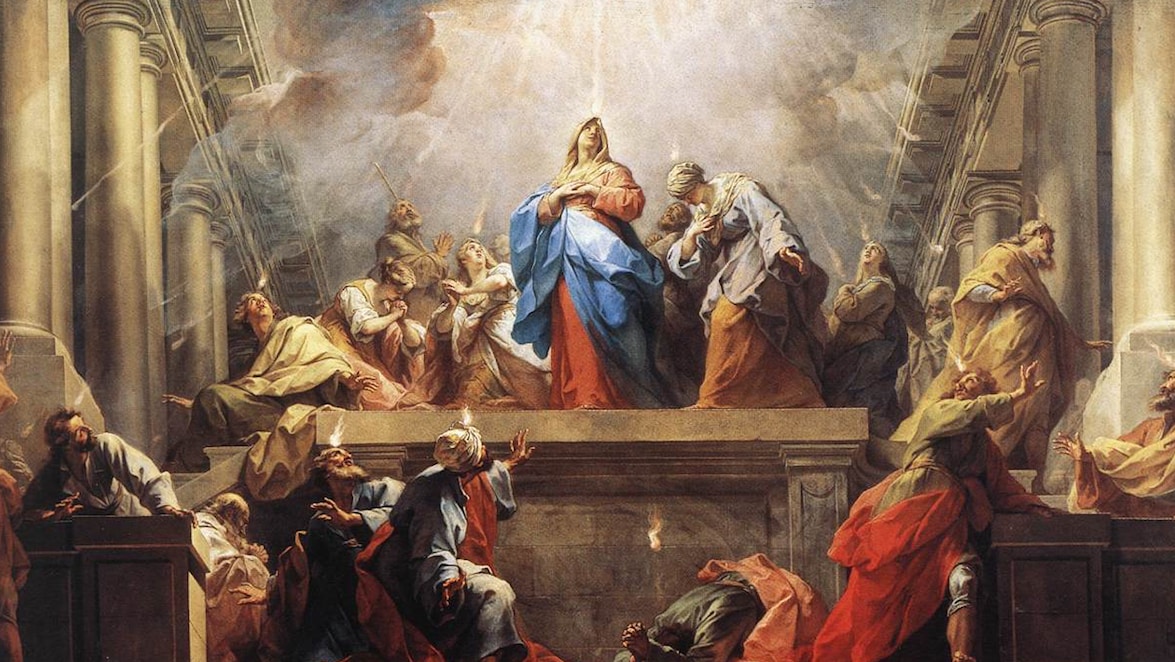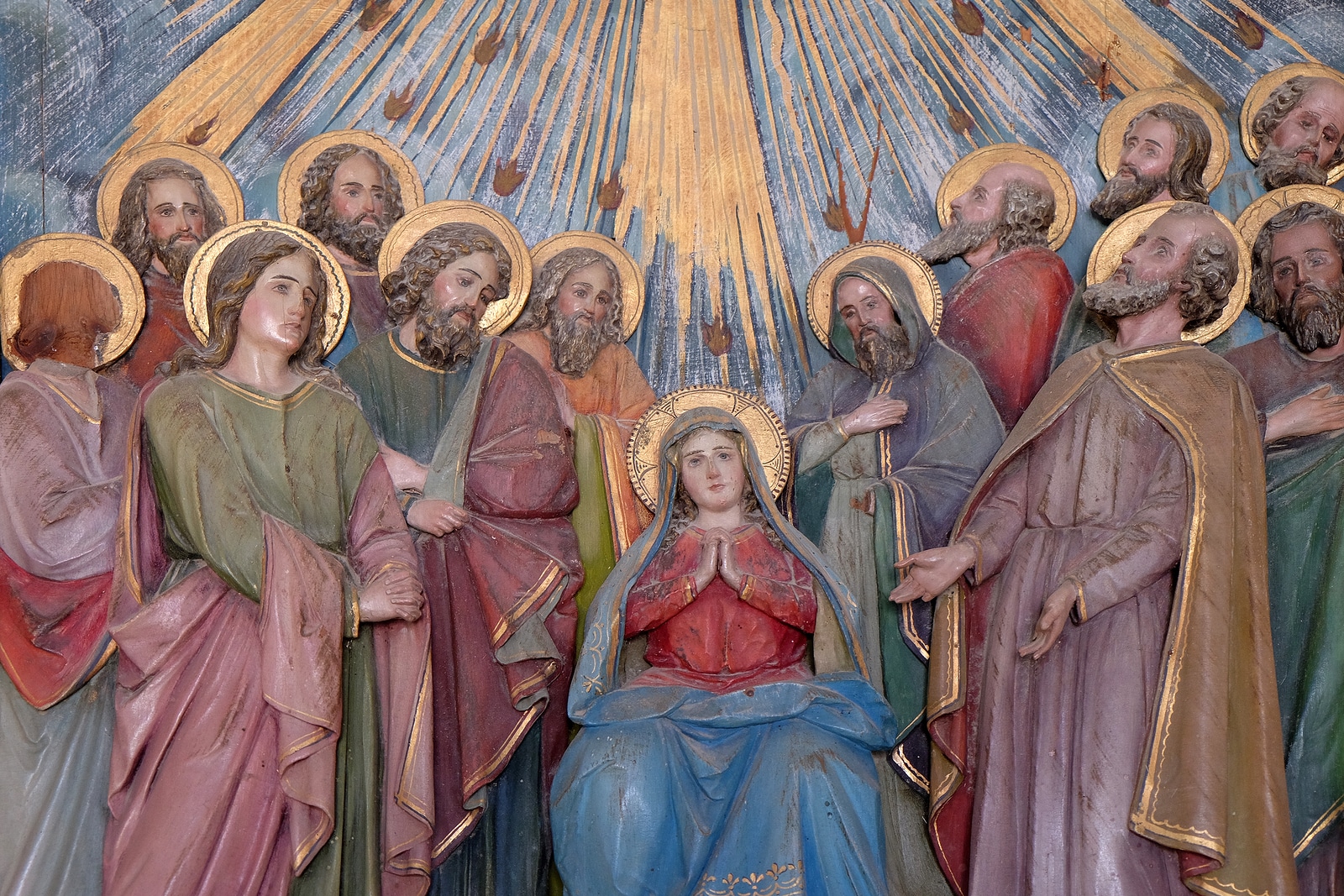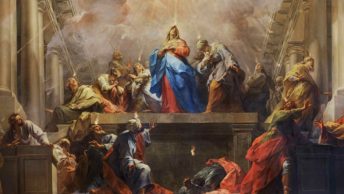A famous Christian evangelist named Dwight Moody frequently preached at missions and revivals, and as a result many people gave their lives to Christ. One day someone asked him, “How many converts did you have last night?,” and he answered, “Two and-a-half.” “Do you mean two adults and a child?” said the questioner, but Mr. Moody responded, “No, two children and one adult.” Mr. Moody’s point was not only that children converted to Jesus have an entire lifetime to serve Him, but also that they tend to give of themselves wholeheartedly, unlike many adults (Michael P. Green, 1500 Illustrations for Biblical Preaching, p. 45). It often seems the older we become, the more we’re set in our ways, and the more we have to work at cooperating with the Holy Spirit, trying to recover the natural openness and trust we had as children. One Saturday night a Protestant minister was very busy working on his sermon for the next day. His little daughter saw him writing and revising and correcting and changing and polishing it, so she asked, “Daddy, how do you know what to write?” The minister answered, “God tells me what to write”—only to be left speechless when she next asked “Then why do you keep erasing?” (Guiding Light: Inspired to Be Genuine, Fr. Joe Robinson, p. 101).
We do have to search for the truth, and because of our weak human nature, this will often involve some false starts and mistakes and misunderstandings on our part—but as long as we humbly give the Lord permission to work within us, His grace will make up whatever is lacking. A six-year-old boy was helping his mother out in the garden one beautiful spring day. He picked up a daffodil bud and studied it closely, then clumsily tried to force it into full blossom. Frustrated, he asked, “Mommy, why is it that when I try to open the bud, it just falls to pieces and dies? How does God open it into a beautiful flower?” Then, before his mother could say anything, he exclaimed, “Oh, I know! God always works from the inside” (homily notebook, “Grace”). If our hearts are open to Divine Grace, the Holy Spirit is able to work within us—converting or changing us, guiding us, and leading us to the fullness of life.
Without the Holy Spirit, we can do nothing worthwhile; with the Spirit, we can do whatever God asks of us. The apostles are wonderful examples of this truth. On the evening of Easter Sunday, they were hiding behind locked doors, ashamed of having abandoned Jesus and fearful of His enemies. Then Jesus Himself appeared, giving them His peace and commissioning them to go out into the world in the power of the Holy Spirit, so as to forgive sins and proclaim the Gospel. The Acts of the Apostles (2:1-11) shows the apostles fulfilling this mission on Pentecost Sunday, preaching powerfully and fruitfully. Through the Spirit, everyone understood their words, and 3000 were baptized that very day. As St. Paul reminds us in his Letter to the Corinthians (1 Cor 12:3-7, 12-13), the Holy Spirit unites us as members of Christ’s body and enables us to live out our faith and thereby truly make a difference.
The German composer Felix Mendelssohn was one of the greatest musicians of the 19th century. One day he visited a cathedral having one of the most priceless organs in all Europe. After listening to the cathedral organist for a while, he asked permission to play it himself, but at first the old man said, “I don’t know you, and we don’t allow any random stranger to play this great instrument.” Eventually, however, Mendelssohn got him to change his mind, and began playing. Soon the cathedral was filled with majestic music unlike anything ever heard there before, and with tears in his eyes, the old organist asked, “Who are you?” Upon learning the visitor’s identity, the cathedral organist exclaimed, “To think that an old fool like me nearly forbade the great Mendelssohn to play upon this organ!” (Knight’s Master Book of 4000 Illustrations, p. 290). It would be an infinitely greater waste and shame if the Holy Spirit planned on doing something wonderful and amazing in and through us, but was unable to do so because we wouldn’t allow it—and how we would later regret it when the truth became known to us.
Perhaps it’s God’s plan that our example of faith touch the heart of someone who would otherwise be lost forever. Maybe the Lord intends that our acts of compassion and acceptance help heal the broken heart of someone staggering under the weight of grief and suffering. It’s possible that our words of advice and encouragement may help a young person discover and pursue his or her vocation in life. Perhaps our openness to Divine Grace will help set into motion a chain of events that ends up changing the course of someone else’s life for the better. Maybe our moral courage in standing up for what we believe will strengthen the wavering faith of someone destined to play a major role in society or in the Church—possibly even someone who will one day become a canonized saint. After all, virtually all the great leaders and religious figures of history owed a major debt of gratitude to ordinary people who quietly but sincerely lived out their faith.
The Holy Spirit can work wonders and miracles in all these simple and unexpected ways—if only we’re willing to cooperate. One day, from the vantage point of eternity, we will see all the marvelous workings of Divine Grace in our lives, and all the ways other people were touched and blessed because we were open to the Spirit. We’ll also see all the opportunities that were wasted, and all the ways people around us suffered unnecessarily, because we were afraid or lazy or unwilling to answer the Lord’s call. The Holy Spirit desires to perform a great symphony of Love and Mercy and Grace in our lives—but this can only happen if we give permission.
What does this mean in practical terms? Simply that we spend quiet time in prayer with the Lord every day, asking Him to guide us and allowing Him to work within us; it means trying to come closer to Jesus, and remaining active members of His Church. Sometimes it means saying “yes” when we’re asked to volunteer or contribute, and always it means using God’s grace to work at overcoming our sins, while freely forgiving those who sin against us. Above all it means trying to love the Lord with all our hearts, and striving to love everyone in His Name. We can do none of these things on our own; we can do all of them—and many more—through the power of the Holy Spirit. This is the good news of Pentecost, and the invitation Jesus extends to us today.








